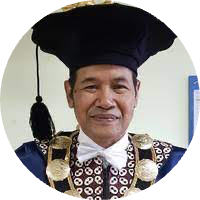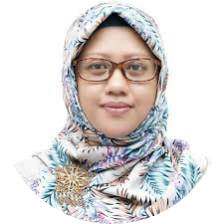Developing mathematics comics through Instagram themed local culture as an alternative learning solution
DOI:
https://doi.org/10.21831/ej.v3i2.50504Keywords:
development, learning media, instagram, math comics, local cultureAbstract
This study aimed to explore mathematical comics learning media through Instagram social media with the theme of local culture as an alternative learning solution that is feasible to use in terms of validity, practicality, and effectiveness. This study used the ADDIE development model. Analysis, to determine the problem and solution. Design, that is designing learning materials and objectives; sketching names, figures, and characters; compiling a script; making a storyboard; creating Instagram feed content. Development is the process of finishing the manufacture of products. The implementation of the product validation test was carried out by two experts in mathematics education and tested by students and teachers in a Junior High School in Salatiga. Evaluation is carried out as the final version of the material for further research based on teacher and student responses. Data collection methods in this study are observation, interviews, questionnaires, literature study, and documentation. The results showed that comics with local characters can engage students in learning mathematics. First, they might be interested to know the local culture and then were realized mathematical thinking. The data showed an average validity of 4.15 with a valid category, average practicality of 4.27 categorized as practical, and an average evaluation test obtained a result of 8.5 so it was categorized as effective on student learning outcomes. Therefore, when creating comics for learning in social media, using local culture is suggested.
References
Arivina, A., & Jailani, J. (2020). Development of trigonometry learning kit with a STEM approach to improve problem solving skills and learning achievement. Jurnal Riset Pendidikan Matematika, 7(2), 178-194. https://doi.org/10.21831/jrpm.v7i2.35063
Daryanto. (2013). Media pembelajaran: Perannya sangat penting dalam mencapai tujuan pembelajaran. Yogyakarta: Gava Media.
Hermann, M., Pentek, T., & Otto, B. (2016, 5-8 January). Design principles for Industrie 4.0 scenarios. Paper presented at the the 49th Hawaii International Conference on System Sciences (HICSS), pp. 3928-3937, IEEE Computer Society, United States. https://doi.org/10.1109/HICSS.2016.488
Hosnan, M. (2014). Pendekatan saintifik dan konstekstual dalam pembelajaran Abad 21. Bogor : Ghalia Indonesia.
Irianto, D. (2017). Industry 4.0: The challenges of tomorrow. Makalah disampaikan pada Seminar Nasional Teknik Industri (SNTI), Universitas Brawijaya, Indonesia.
Ismail, N. (2011). Konflik umat beragama dan budaya lokal. Bandung: Lubuk Agung.
Junawan, H., & Laugu, N. (2020). Eksistensi media sosial, YouTube, Instagram dan Whatsapp ditengah pandemi covid-19 dikalangan masyarakat virtual Indonesia. Baitul Ulum: Jurnal Ilmu Perpustakaan dan Informasi, 4(1), 41-57. https://doi.org/10.30631/baitululum.v4i1.46
Kemp, S. (2020). Digital 2020: Indonesia, Data Reportal–Global Digital Insights, 18 February 2020. Retrieved from https://datareportal.com/reports/digital-2020-indonesia?rq=indonesia
Listiyani, I.M., & Widayati, A. (2012). Pengembangan komik sebagai media pembelajaran Akuntansi pada kompetensi dasar persamaan dasar Akuntansi untuk siswa SMA kelas XII. Jurnal Pendidikan Akuntansi Indonesia, 10(2), 80-94. http://dx.doi.org/10.21831/jpai.v10i2.914
Maharsi, I. (2014). Komik: dari wayang Beber sampai komik digital. Yogyakarta: Badan Penerbit ISI.
Manampiring, R.A. (2015). Peranan media sosial Instagram dalam interaksi sosial antar siswa SMA Negeri 1 Manado (studi pada jurusan IPA angkatan 2012). E-journal "Acta Diurna", 4(4). https://ejournal.unsrat.ac.id/v3/index.php/
actadiurnakomunikasi/article/view/8500/8075
Morrison, G.R. (2010). Designing effective instruction (6th Ed.). New York: John Wiley & Sons
Musfiqon. (2012). Pengembangan media belajar dan sumber belajar. Jakarta: Prestasi Pustakakarya.
Nurjaman, A., & Hertanto, H. (2022). Social media and election under covid-19 pandemic in Malang regency Indonesia. International Journal of Communication and Society, 4(1), 1-11. https://doi.org/10.31763/ijcs.v4i1.410
Rahmawati, D. (2016). Pemilihan dan pemanfaatan Instagram sebagai media komunikasi pemasaran online. Skripsi. Universitas Islam Negeri Sunan Kalijaga. Yogyakarta: tidak diterbitkan. http://digilib.uin-suka.ac.id/id/eprint/20145/
Setiawan, S., & Poerbosisworo, I. R. (2021). Opportunities for using technology industry 4.0 to overcome the negative effect of the covid-19 pandemi. Jurnal Pekommas, 6(3), 55–65. https://doi.org/10.30818/jpkm.2021.2060306
Suherman, E. (2001). Strategi pembelajaran matematika kontemporer. Bandung: UPI-JICA.
Tjandrawinata, R.R. (2016). Industri 4.0: Revolusi industri abad ini dan pengaruhnya pada bidang kesehatan dan bioteknologi. Medicinus, 29(1), 31-39.
Downloads
Published
How to Cite
Issue
Section
Citation Check
License
The authors submitting a manuscript to this journal agree that, if accepted for publication, copyright publishing of the submission shall be assigned to Ethnomathematics Journal. However, even though the journal asks for a copyright transfer, the authors retain (or are granted back) significant scholarly rights.

Ethnomathematics Journal by https://journal.uny.ac.id/index.php/ethnomath is licensed under a Creative Commons Attribution-ShareAlike 4.0 International License.












